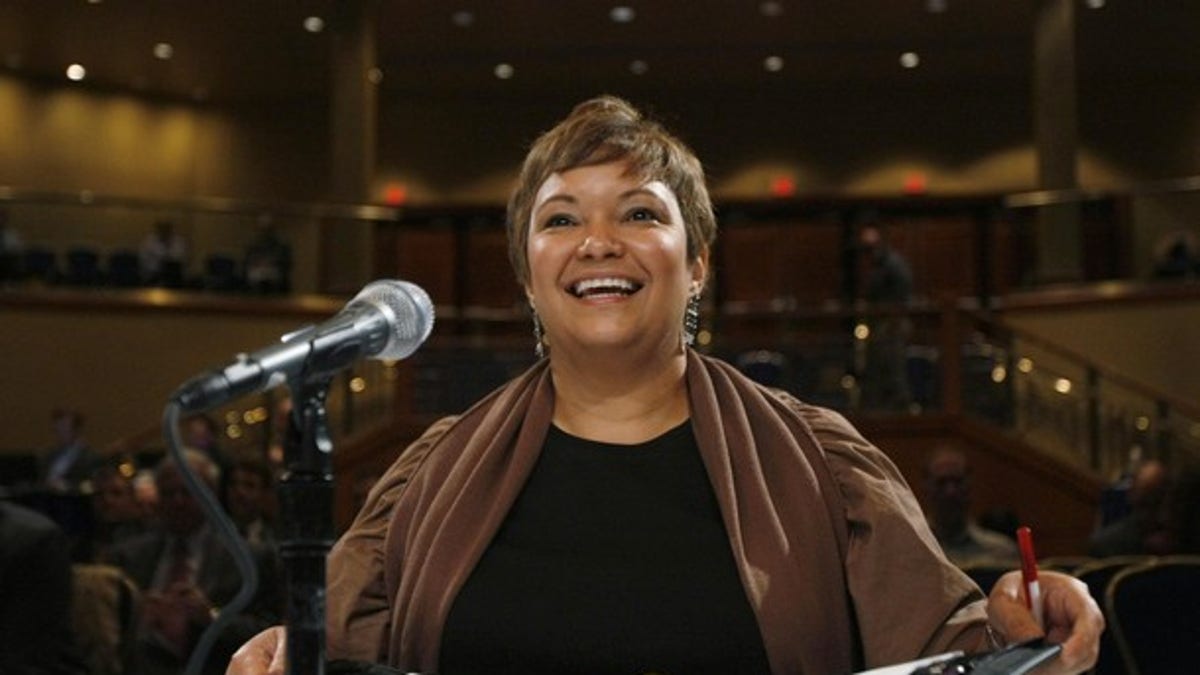
FILE: In this Sept. 27, 2010, photo, EPA Administrator Lisa Jackson smiles as she arrives to testify before the National Commission on the BP Deepwater Horizon Oil Spill and Offshore Drilling. (Reuters)
WASHINGTON -- The head of the Environmental Protection Agency is in for some grilling by Congress this year, so much so that a top House Republican joked that she should line up a permanent parking spot at the Capitol.
Topic A is the agency's attempt to curb the release of gases blamed for global warming. Having failed last year to enact new legislation to reduce greenhouse gases, the administration is left to use existing law to achieve its goals.
That, Republicans contend, will penalize industries that otherwise could be creating new jobs, and they've made the agency a central target of their anti-regulatory agenda.
On Wednesday, EPA chief Lisa Jackson goes before a House committee determined to block her agency's steps to address climate change. Jackson contends the law and compelling scientific evidence on global warming give her no choice but to act.
The agency has been caught before in shifting political winds. But in the 40 years since Republican President Richard Nixon created the federal agency charged with protecting the public from pollution, and Congress nearly unanimously passed laws that have cleaned up the air and water, longtime observers say the atmosphere for the agency has never been more toxic than it is now.
"It's really been quite extreme," said William Ruckelshaus, who was the first EPA administrator under Nixon and later ran the agency under President Ronald Reagan, of the rhetoric being aimed at the agency this time around. "What are they supposed to do? Sit there and do nothing?"
The latest and perhaps most draconian attack came from former House speaker and possible 2012 GOP presidential candidate Newt Gingrich, who called for abolishing the EPA and replacing it with an organization more friendly to business.
That followed Democrat Sen. Joe Manchin's use of a rifle to blast a hole through legislation limiting the gases blamed for global warming in a campaign commercial. The stunt helped him win West Virginia's open Senate seat.
Mike McKenna, a Republican strategist, says Gingrich and Manchin are outliers in a more reasoned debate over how big the global warming problem is and the different approaches for dealing with it.
"I don't think the (political) base is ready to throw EPA out the window," McKenna said. "There are plenty of people across the country who want EPA ratcheted down and think it has gone too far, too fast."
Lawmakers of both parties have already introduced a dozen bills aimed at weakening, delaying or blocking pollution regulations. Business groups invited by congressional Republicans to describe their biggest regulatory burdens singled out EPA rules more than any others.
The main target is the agency's use of the Clean Air Act to control emissions of greenhouse gases, a law that the Supreme Court said in 2007 could be used to fight global warming.
In 2009, the EPA under President Barack Obama put the law in motion when it concluded climate changes being caused by pollution from industries, automobiles and other sources burning fossil fuels are a threat to public health and welfare. Some Republicans -- and some Democrats from industrial states -- aren't convinced that's the case.
There's also growing resistance to a host of other regulations expected from the agency. Some were initiated by Obama, but others are the result of courts throwing out Bush-era regulations. Still others stem from reviews required by law to update standards to reflect the latest science. They cover everything from ground-level ozone, the main ingredient in smog, to coal ash disposal, to a rule aimed at reducing pollution blowing into downwind states.
"There has been an onslaught of job-crushing regulations emerging from the EPA over the last few years," said Sen. John Barrasso, R-Wyo., at a recent hearing of the Senate Environment Committee. It was Jackson's first trip to Capitol Hill since Republicans took over the House and gained more seats in the Senate.
The EPA's defenders say the agency is simply following statutes aimed at protecting people's health -- something they say has strong support and is necessary for a healthy economy.
"Simply put, you can't work if you can't breathe," Sen. Barbara Boxer, D-Calif., has said.




